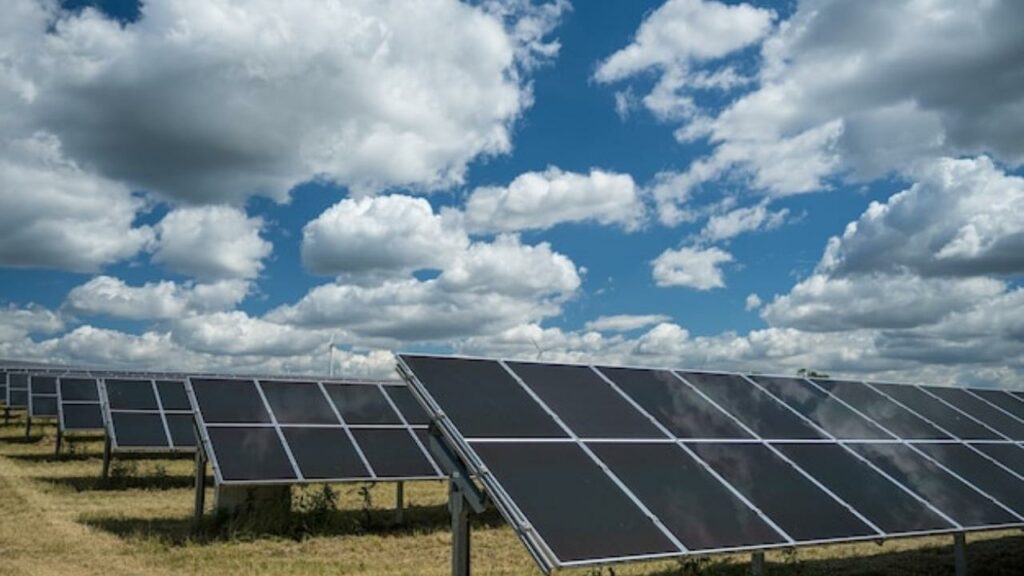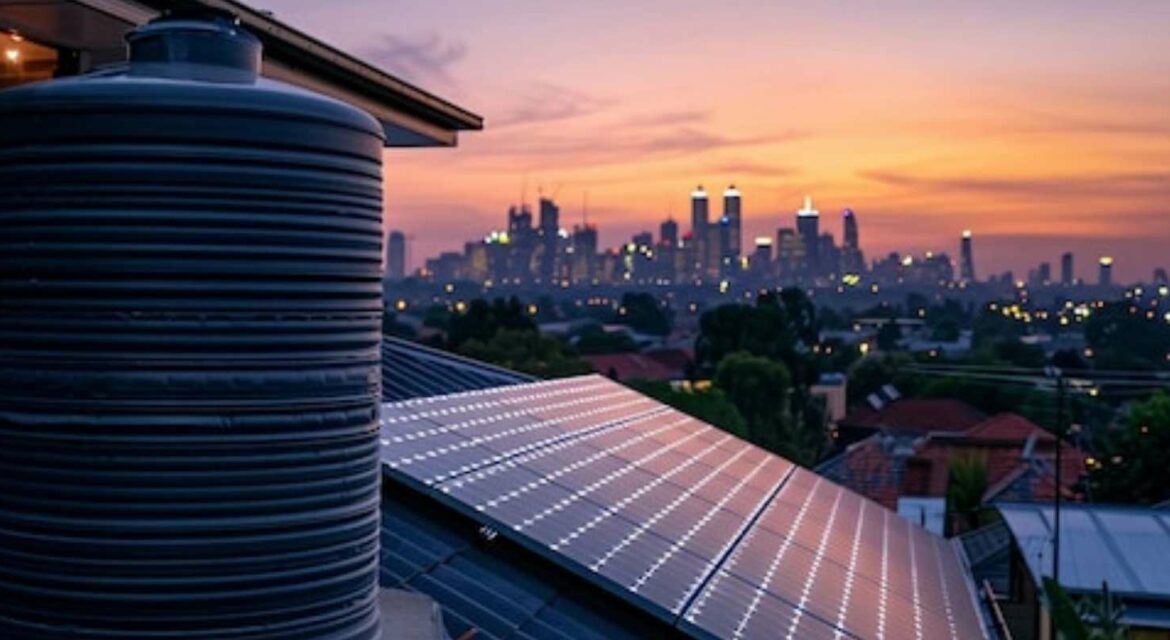India is embracing solar energy as a solution to its growing electricity demand, high energy costs, and environmental concerns. With its abundant sunlight, solar energy is a promising renewable energy source for both residential and commercial properties. As one of the best solar service providers in India, we aim to help you make informed decisions about solar panel installation. In this blog, we will explore the costs associated with solar panel installation in India, the factors that affect the price, and how you can save money by switching to solar energy.
1. Average Cost of Solar Panels in India
The cost to install solar panels in India has seen a significant decline in recent years due to technological advancements, increased competition, and government initiatives. On average, the cost of installing solar panels in India ranges between ₹35,000 to ₹70,000 per kilowatt (kW), depending on the type of system, brand, and other influencing factors.
Cost Breakdown
- Solar Panel Costs: The primary component of the system, solar panels account for about 40-50% of the total installation cost. The price of a 1kW solar system typically costs around ₹35,000 to ₹45,000.
- Inverter and Other Equipment: In addition to solar panels, essential equipment like the inverter, wiring, and mounting structure adds to the cost. For a 1kW system, an inverter may cost around ₹10,000 to ₹20,000.
- Installation Charges: Installation costs vary depending on the location and the service provider, but on average, this can range from ₹5,000 to ₹10,000.
- Additional Costs: If you choose to include batteries for solar energy storage (to store excess energy), the cost can range from ₹40,000 to ₹1,00,000.
2. Factors Affecting the Cost of Solar Panel Installation in India
The cost of installing solar panels varies based on multiple factors:
a) Size of the System
The size of the system is one of the most significant factors determining the cost. Residential solar installations typically range from 1kW to 5kW, while commercial solar systems can range from 10kW to several megawatts (MW). Larger systems tend to be more cost-effective on a per-watt basis.
b) Type of Solar Panel
There are three primary types of solar panels—monocrystalline, polycrystalline, and thin-film. Monocrystalline panels offer higher efficiency but come at a higher price. Polycrystalline panels are more affordable but slightly less efficient, while thin-film panels are cheaper but less commonly used for residential systems.
c) Location and Installation Complexity
The location of the property can impact the installation costs. Urban areas generally incur higher labor and logistical costs. Furthermore, the complexity of the installation, such as roof structure or system orientation, may also influence the cost.
d) Government Incentives and Subsidies
Government schemes and subsidies can significantly reduce the overall cost. Programs like the MNRE subsidy for residential installations and net metering options in various states can reduce the upfront cost and provide long-term savings.

3. Government Incentives for Solar Panel Installation in India
The Indian government offers multiple incentives to encourage the use of solar energy, reducing the overall cost of installation.
a) MNRE Subsidy for Residential Installations
The Ministry of New and Renewable Energy (MNRE) offers up to 40% subsidies for residential solar installations. For instance, a 3kW system can receive a subsidy of ₹30,000 to ₹50,000, significantly lowering the initial investment.
b) State-Specific Incentives
Some Indian states like Tamil Nadu, Gujarat, and Rajasthan offer additional incentives, including interest-free loans and further subsidies, making it more affordable to go solar.
c) Net Metering
Net metering is a system that allows you to sell excess electricity generated by your solar panels back to the grid. This helps offset installation costs, reducing your electricity bill and contributing to the savings over time.
4. Cost Savings and Return on Investment (ROI)
Though the initial cost of solar panel installation can seem high, the long-term savings on electricity bills and the return on investment (ROI) make it worthwhile.
a) Savings on Electricity Bills
Solar panels can reduce your monthly electricity bills by up to 80-90%, depending on the size of the system and your energy usage. This can save thousands of rupees annually.
b) Payback Period
Typically, the payback period for solar panel systems in India ranges from 5 to 7 years. After this period, the system will continue to generate free electricity for another 15-20 years, making it a financially sound investment.
c) Increase in Property Value
Homes equipped with solar energy systems are increasingly in demand, and properties with solar panels often have a higher resale value. A well-installed solar system adds value and makes your property more attractive to buyers.

5. Why Choose Us? The Best Solar Service Providers in India
At SIA Engineering, we pride ourselves on being one of the best solar service providers in India. We offer expert consultation, high-quality solar panels, and installation services that guarantee a seamless experience. Our team of skilled professionals ensures that your solar energy system is tailored to meet your energy needs, saving you money while contributing to a sustainable future.
Here’s why SIA Engineering is the right choice for you:
- Customized Solutions: We offer personalized solutions based on your energy needs and budget.
- Top-Quality Panels and Equipment: We source only the highest-quality solar panels and inverters from leading manufacturers.
- Expert Installation: Our certified and experienced team handles every aspect of your installation, ensuring efficiency and reliability.
- Timely Service: We ensure that your installation is completed on time, minimizing downtime and maximizing savings.
- Affordable Pricing: As one of the best solar service providers, we offer competitive pricing and help you make the most of subsidies and government incentives.
6. Conclusion: Is Solar Panel Installation Worth It?
The cost of installing solar panels in India is becoming more affordable due to falling prices, government incentives, and long-term savings. With a payback period of 5-7 years and potential savings of 80-90% on electricity bills, solar panels are a wise investment for both residential and commercial users.
Switching to solar energy not only helps you reduce your electricity bills but also contributes to a cleaner and greener environment. By choosing SIA Engineering—one of the best solar service providers in India—you can enjoy a smooth installation process, premium-quality solar systems, and maximum energy savings.
FAQs
- How much does it cost to install solar panels in India?
The cost typically ranges from ₹35,000 to ₹70,000 per kW, depending on the type and size of the system. - Can I get subsidies for installing solar panels?
Yes, under the MNRE scheme, you can receive subsidies of up to 40% for residential solar systems. - What is the payback period for solar panel systems in India?
The payback period is usually between 5 to 7 years. - What type of solar panel is best for residential use?
Monocrystalline panels offer the highest efficiency, while polycrystalline panels are a more affordable option. - Can solar panels increase the value of my property?
Yes, homes with solar panels often see an increase in property value, making them more attractive to buyers.
Ready to switch to solar? Contact SIA Engineering, one of the best solar service providers in India, and get a customized solar panel installation quote today. Let’s make your energy-efficient future a reality!






